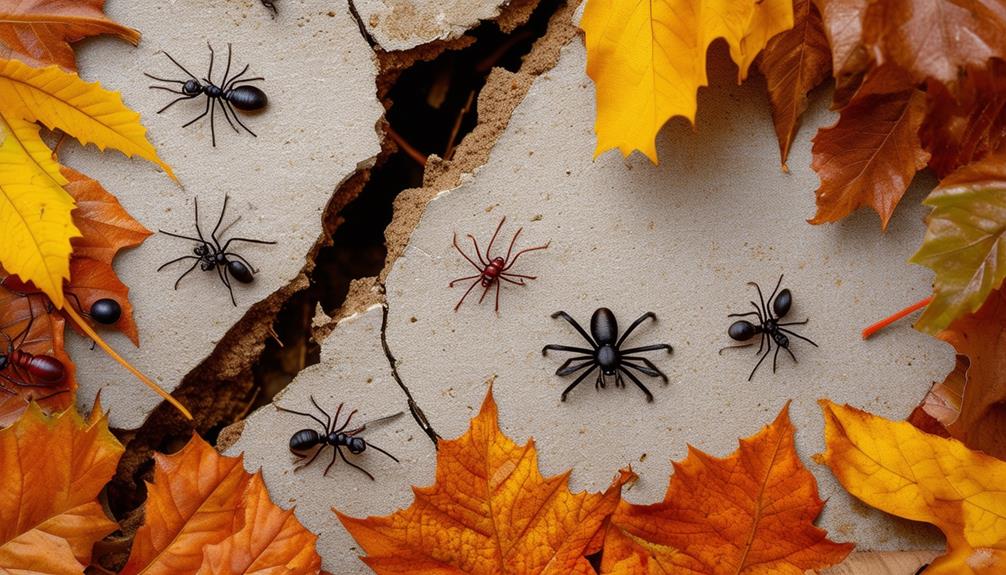Pest control plays a significant role in maintaining public health and ensuring the safety and well-being of humans. It involves the management and eradication of pests that pose risks to human health, property, and the environment.
This article explores the impact of pest control on humans, with a particular focus on the use of chemical pesticides, allergies and respiratory issues, water and food safety, non-chemical pest control methods, integrated pest management approaches, the benefits of pest control in disease prevention, and the need to balance pest control with environmental sustainability.
The objective of this article is to provide an objective and impersonal analysis of the ways in which pest control practices can affect humans, offering insights that will be of interest to a wide range of readers who are concerned about the potential risks and benefits associated with pest control methods.
Key Takeaways
- Direct contact or inhalation of chemical pesticides can cause a range of health issues, including skin irritation, respiratory problems, and even cancer.
- Alternative pest control methods, such as biological control, can help minimize health risks by avoiding the use of chemical pesticides.
- Pesticide runoff and residues can contaminate water sources and food, posing risks to human health. Stringent regulations and proper pesticide management are necessary for water and food safety.
- Integrated Pest Management (IPM) approaches offer a holistic and sustainable approach to pest control, prioritizing human well-being and ecosystem health.
Chemical Pesticides and their Health Risks
The use of chemical pesticides in pest control has been associated with various health risks for humans. Pesticide exposure, either through direct contact or inhalation, can lead to short-term health effects such as skin irritation, nausea, headaches, and respiratory problems.
However, the long-term health effects of pesticide exposure are of particular concern. Studies have shown that chronic exposure to chemical pesticides may be linked to the development of various diseases, including cancer, neurological disorders, reproductive issues, and endocrine disruption.
Children and pregnant women are especially vulnerable to these risks due to their developing immune systems and increased susceptibility to toxins.
To minimize the potential health risks associated with chemical pesticides, it is crucial to adopt alternative pest control methods that are safer for humans and the environment.
Allergies and Respiratory Issues
Allergies and respiratory issues, specifically asthma and allergic rhinitis, can be influenced by exposure to pesticides. Indoor air quality is a key factor in the development and exacerbation of these conditions.
Chemical pesticides, commonly used in pest control, can release volatile organic compounds (VOCs) into the air, which can trigger allergic reactions and respiratory symptoms in sensitive individuals. Long-term exposure to these VOCs has been associated with an increased risk of developing asthma and allergic rhinitis.
Additionally, the use of chemical pesticides indoors can further compromise indoor air quality, leading to the persistence of respiratory issues. Therefore, it is crucial to consider alternative pest control methods that minimize the use of chemical pesticides to protect both the immediate and long-term health of individuals.
Impact on Water and Food Safety
Exposure to pesticides has been shown to have significant implications for water and food safety.
Water contamination can occur through the runoff of pesticides from agricultural fields into nearby water sources. Pesticides can leach into groundwater or be carried by surface water, leading to the contamination of drinking water supplies. This poses a risk to human health as consuming water contaminated with pesticide residues can have adverse effects, such as acute toxicity or long-term health issues.
Additionally, pesticide residues in crops can also pose a threat to food safety. When pesticides are applied to crops, they can leave behind residues that may persist even after harvesting. Consuming fruits, vegetables, or other food products containing pesticide residues can potentially result in health problems for individuals.
Therefore, it is crucial to implement stringent regulations and practices to minimize water contamination and ensure the safety of our food supply.
Non-Chemical Pest Control Methods
Non-chemical pest control methods offer an environmentally friendly and sustainable approach to managing pests without relying on harmful pesticides. Natural alternatives, such as biological control, can effectively reduce pest populations while minimizing the negative impact on humans and the environment.
Biological control involves using natural enemies, such as predators, parasites, or pathogens, to control pest populations. For example, introducing ladybugs to control aphids or using nematodes to combat soil pests are commonly employed strategies.
These methods are advantageous as they do not pose health risks to humans or contaminate water and food sources. Additionally, they do not contribute to the development of pesticide resistance in pests.
Natural alternatives for pest control provide an effective and safe means of managing pests while reducing the reliance on chemical pesticides.
Integrated Pest Management Approaches
Integrated Pest Management (IPM) approaches provide a comprehensive and sustainable framework for effectively managing pest populations while promoting ecological balance and minimizing potential harm to the environment. These approaches involve a combination of biological control methods, such as the use of natural predators and parasites, along with cultural, physical, and mechanical controls. By utilizing these strategies, IPM aims to reduce reliance on chemical pesticides and minimize the risks associated with their use.
One of the key benefits of IPM is its economic impact. By implementing IPM strategies, farmers and pest control professionals can reduce the need for costly chemical treatments, leading to significant cost savings. Additionally, IPM can help prevent crop losses and minimize the damage caused by pests, thus ensuring a more sustainable and profitable agricultural system.
Overall, integrated pest management approaches offer a holistic and environmentally friendly approach to pest control, with a focus on long-term solutions that prioritize the well-being of humans and the ecosystem.
Benefits of Pest Control in Disease Prevention
The effective management of pests plays a crucial role in preventing the spread of diseases and maintaining the health of ecosystems.
Pest control methods, such as integrated pest management approaches, contribute to disease prevention by reducing the population of disease-carrying pests.
By implementing strategies that focus on long-term prevention rather than relying solely on chemical treatments, pest control professionals can minimize the use of harmful pesticides, thereby reducing the risk of adverse health effects on humans.
Additionally, effective pest control practices can have a positive economic impact by protecting crops and structures from damage caused by pests.
This helps to ensure a stable food supply, reduce the risk of structural damage, and minimize the need for costly repairs and replacements.
Overall, pest control plays a vital role in protecting human health and enhancing the well-being of society.
Balancing Pest Control and Environmental Sustainability
Balancing the need for effective pest management with the imperative of environmental sustainability requires careful consideration of ecological dynamics and the potential impacts of pest control strategies on ecosystems.
Pest control techniques play a crucial role in protecting human health and preventing the spread of diseases. However, many conventional methods can have adverse effects on the environment, such as the contamination of water sources and the disruption of natural ecosystems.
To address these concerns, eco-friendly alternatives to traditional pest control methods have been developed. These alternatives prioritize the use of non-toxic and biodegradable substances, as well as the promotion of natural pest control mechanisms. Integrated Pest Management (IPM) approaches are one such example, which involve the judicious use of pesticides alongside methods like biological control, habitat modification, and crop rotation.
By adopting eco-friendly pest control techniques, we can minimize the negative impacts on ecosystems while still effectively managing pest populations. This approach not only contributes to environmental sustainability but also ensures the long-term well-being of both humans and the natural world.
Frequently Asked Questions
Are there any natural alternatives to chemical pesticides that can be used for pest control?
Natural alternatives to chemical pesticides, such as biological controls, crop rotation, and companion planting, offer numerous benefits for pest control. These methods are environmentally friendly, reduce the risk of pesticide exposure, and promote sustainable agriculture practices.
Can pest control methods have an impact on the quality of indoor air?
Pest control methods can have an impact on the quality of indoor air, potentially affecting respiratory health. It is important to consider the effectiveness of natural remedies as alternatives to chemical pesticides to minimize these risks and serve the well-being of individuals.
How do pesticides affect children compared to adults?
Pesticide exposure can have more severe developmental effects on children compared to adults. Children are more vulnerable due to their developing organ systems and higher intake of food and water per unit of body weight.
Does pest control have any long-term effects on the environment?
Long-term consequences of pest control on the environment include disruption of ecological balance, as it may harm non-target species, reduce biodiversity, and lead to the development of pesticide-resistant pests.
What are the potential health risks associated with using non-chemical pest control methods?
Potential health risks associated with using non-chemical pest control methods include allergic reactions, respiratory problems, and skin irritation. However, these risks are generally lower compared to chemical pest control methods, making non-chemical alternatives a safer option for humans.





